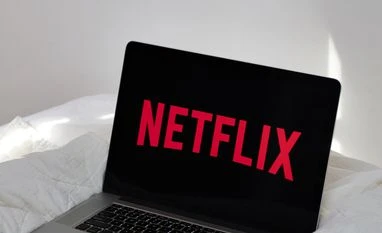By Lucas Shaw
Netflix Inc. will begin cracking down this quarter on US viewers who share someone else’s account, predicting plans to charge such customers will boost growth in the second half of the year.
The company, which reported a lower-than-expected subscriber gain for the first quarter, has been testing ways to reduce account sharing in Latin America, and rolled out a plan to charge such users in four additional territories in the first quarter.
Netflix estimates that more than 100 million people use an account they don’t pay for, and analysts see paid sharing as a large potential source of new customers or sales. The company had planned to begin charging for password sharing in the US in the first three months of 2023. Now it says it will do so in the next couple months.
Shares of Netflix were down 1% at $330.47 in extended trading, erasing a loss of as much as 12% after the results were announced. In addition to forecasting a pickup in the second half of the year, Netflix raised its free cash flow forecast for 2023 to $3.5 billion.
In Canada, one of the markets where the company has cracked down, the paid member customer base is now larger.
More From This Section
“Their comments on results in Canada seem better than some had feared,” said Magalie Grossheim, senior analyst at M Science, a research unit of Jefferies Financial Group Inc.
Netflix could use a lift. The company got off to a slow start to 2023, missing Wall Street estimates by adding only 1.75 million customers in the first quarter. Investors were expecting 2.41 million new customers. But the company predicted new initiatives like the password sharing plan and a new tier of service with ads will allow “growth to accelerate over the course of the second half of 2023.”
This is the second year in a row where Netflix has gotten off to a shaky start as the company has gone from a high-flying phenom to a middle-aged star searching for its next big hit. The streaming service lost customers in the first half of 2022 and added fewer than 9 million customers for the full 12 months, its slowest pace since 2011, the year it split its streaming service from its DVD-by-mail business. Netflix said Tuesday it is shutting down its DVD delivery operation, ending its original business after a 25-year run. That business has been shrinking for years.
The streaming industry pioneer has responded to its slowing growth by introducing two new initiatives: the plan to crack down on password sharing and an advertising-supported tier. The advertising tier debuted in November but has yet to contribute a material number of subscribers. The company had said that both advertising and password sharing will offer modest contributions in the first quarter of the year but would pick up over the course of the year.
Netflix has urged investors to stop fixating on subscriber additions and instead look at traditional financial metrics like sales and profit. The company generated more than $2 billion in free cash flow in the first quarter, and reported net income of $1.31 billion.
Cracking down on password sharing will cause some customers to stop using the service in the short term. Netflix’s challenge is to get them to pay for their own account or pay to share the one they currently use. Either scenario would boost sales in markets like the US and Latin America.
The service added just 100,000 customers in the US and Canada after losing almost 1 million customers last year. It lost subscribers in Latin America, a development that could be the result of the crackdown on password sharing.
Netflix is still the most popular TV network in the US by a good margin. It accounts for more than 7% of all TV viewing in the US each month, according to Nielsen, more than double any paid service. It also tops linear networks, according to CBS. Netflix released several new hits in the quarter, including new seasons of Ginny & Georgia and Outer Banks, the new show The Night Agent and the film You People.
The Asia-Pacific region continues to be Netflix’s bigger source of new customers. The service added 1.46 million customers there in the quarter, thanks in part to lowering prices in India and other poorer countries. Netflix said it is growing more sophisticated about pricing.
)